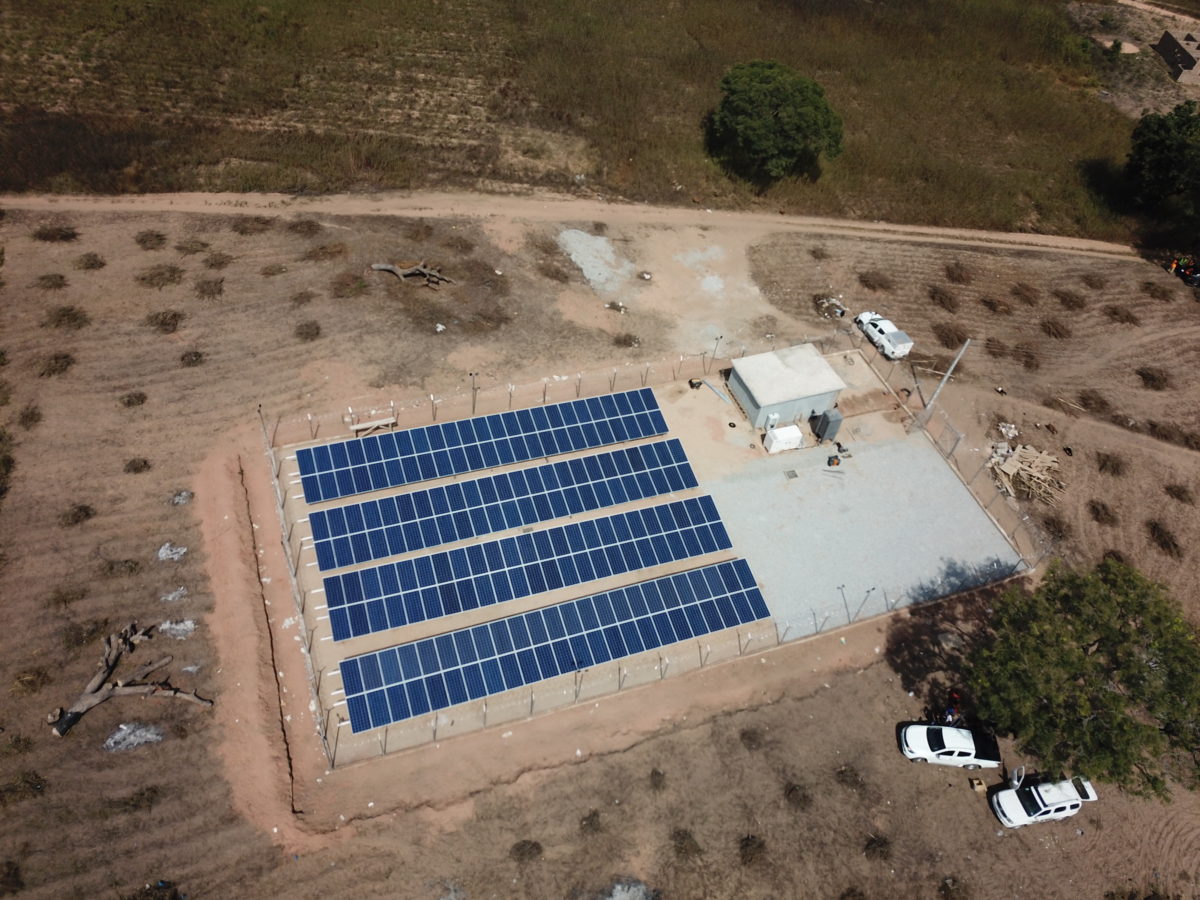Nairobi-based installer PowerGen is aiming to supply electricity to 55,000 people in rural Nigeria by completing the installation of 28 solar mini-grids by the middle of next year.
The CrossBoundary Energy Access (CBEA) project finance facility for African mini-grids will buy the completed networks, with their construction to be funded by three entities which will hold equity stakes in the projects during their construction phase, to be recouped by the CBEA purchase.
Dutch microfinance lender Oikocredit; compatriot impact investor Triodos Investment Management, which is owned by sustainable bank Triodos; and EU development finance entity ElectriFI will provide $9 million of construction finance between them, with U.S.-owned installer PowerGen paying any remaining project costs.
Solar and sustainability
Via the UP Initiative, pv magazine is diving deep into the topic of what it means to be truly sustainable in the solar industry, looking at what is already being done, and discussing areas for improvement. Quarterly themes have thus far covered the use of lead in solar, raw material sourcing for batteries, green finance, circular manufacturing, PV module recycling, agriPV, and workers’ rights. Contact up@pv-magazine.com to learn more.
The Nigeria Electrification Project run by government body the Rural Electrification Agency of Nigeria will award the project $350 grants for each electricity consumer who is connected to the networks, with that money being supplied by the World Bank.
With seven mini grids already live, PowerGen aims to install 28 systems with a total generation capacity of 2.1 MW and an average figure of around 70 kW per set-up, and with around 4.5 MWh of total battery storage at a typical mini-network volume of around 160 kWh. At each site, customers will pay in advance for solar electricity and be able to top-up credit using their mobile phones or by visiting a local PowerGen agent.
Alastair Smith, co-founder and country director for PowerGen in Nigeria, told pv magazine: “We have a plan to deploy 21 sites between now and mid-year next year. Our current, active seven sites, at the moment cover about 11,000 connections. The size of the community can vary depending on the final build and final system design. We have completed the first phase of the project but we still have the remainder of the project which we will be building for the remainder of this year and the beginning of next year. Upon completion, PowerGen will continue operating all the projects, and CBEA will be the owner.”
Popular content
The seven sites already in place have a total generation capacity of 460 kWp and storage volume of 1,157 kWh. Referring to PowerGen parent company WindGen Power USA, Smith said: “The parent company of PowerGen is an American company but, in Nigeria, the goal is to have 100% Nigerians running and operating our PowerGen Nigeria company and the sites. As we grow, we are not bringing in additional expatriates. We are hiring local individuals that can help mini-grids thrive and flourish.”
‘Excited'
CrossBoundary associate principal Humphrey Wireko told pv magazine: “We're excited to work with such strong partners to reach an agreement to finance and own this portfolio of mini-grids in Nigeria. We continue to believe that mini-grids are a key tool for bringing power to over 200 million people in Africa, and this project finance structure is the best way to attract the $187 billion of investment that these assets need. This transaction is a testament to the fantastic work being done by many stakeholders to help facilitate off-grid investment in Nigeria. We see this as the first of many such financings that CBEA plans to do in Nigeria.”
Estefanía Matesanz, senior investment manager for private equity at Triodos said: “This equity investment in PowerGen's mini-grids project can be considered a landmark investment with major strategic importance both for Triodos IM [Investment Management] and the African mini-grids sector development.”
CrossBoundary Energy Access was set up by by Nairobi-based financial services entity CrossBoundary and backed by the Shell and Rockefeller foundations, Anglo-American impact investor Ceniarth, and lottery-funded Netherlands investor Stochting Doen, with Massachusetts impact investor Blue Haven Initiative also having come on board since.
This content is protected by copyright and may not be reused. If you want to cooperate with us and would like to reuse some of our content, please contact: editors@pv-magazine.com.


1 comment
By submitting this form you agree to pv magazine using your data for the purposes of publishing your comment.
Your personal data will only be disclosed or otherwise transmitted to third parties for the purposes of spam filtering or if this is necessary for technical maintenance of the website. Any other transfer to third parties will not take place unless this is justified on the basis of applicable data protection regulations or if pv magazine is legally obliged to do so.
You may revoke this consent at any time with effect for the future, in which case your personal data will be deleted immediately. Otherwise, your data will be deleted if pv magazine has processed your request or the purpose of data storage is fulfilled.
Further information on data privacy can be found in our Data Protection Policy.